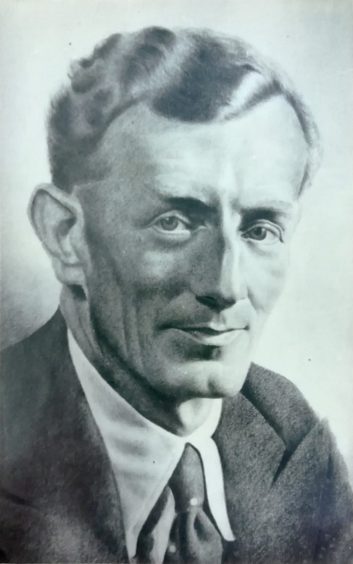A new online resource celebrating an acclaimed Fife who TS Eliot called the best Scottish poet since Robert Burns, has been launched by the St Andrews University, thanks to an enthusiastic young Frenchman.
Developed by Paul Malgrati, a French PhD student and part-time lecturer from the School of English, the new website commemorates Joe Corrie, (1894-1968), the socialist miner from Cardenden whose plays, poems, and fiction give him a prominent place in the literary and working class heritage of Fife.
Thanks to Paul’s research, the site also sheds fresh light on the great Fifer’s life and works.
The University of St Andrews marked the 50th anniversary of Corrie’s death in 2018 with the first academic conference devoted to his life and works.
Paul, a poet who writes in Scots and also works on Robert Burns, brought together historians, scholars of literature, musicians and creative writers to discuss subjects as diverse as Corrie’s texts, context, stagecraft, politics and his potential role in Scottish schools’ curriculum for excellence.
A biography of Corrie and a guide to his extensive archive, as well as seven essays written by conference participants, have now been brought together by Paul in the one place.
Made available by the Digital Humanities team at the university library, these now form part of the Joe Corrie website https://arts.st-andrews.ac.uk/joe-corrie/
“As a Frenchman who has fallen in love with Scottish culture, I’d be delighted if this website fosters new research about Corrie and encourages Fife teachers to introduce Corrie’s works to their pupils,” he said.
Aged just 14, Corrie entered the Lochgelly pits in 1908, and worked there for 12 years.
Largely self-taught, he developed an intense love of literature, and wrote his first, unpublished, poetry collection in 1919.
Two years later, however, his health deteriorated.
Forced to leave the mine and on the brink of poverty, the young writer was saved by local trade unionists who offered him a job with the journal of the miners’ union.
This was the beginning of Corrie’s long writing career. He went on to write hundreds of articles, poems, and songs, as well as 75 plays.
Renowned poet and writer TS Eliot, who edited Corrie’s poetry, thought him one of the best Scots poets since Burns.
Corrie’s work was translated into French, German, Gaelic, and Russian, as well as being performed by professional and amateur theatre groups throughout Scotland and beyond.
His most famous play, In Time o’ Strife, which depicts the hardships of a mining community during the 1926 General Strike, was revived during the 1980s by the radical theatre group 7:84.
A new version of the play was toured by the National Theatre of Scotland in 2013 and republished by Bloomsbury in London.











